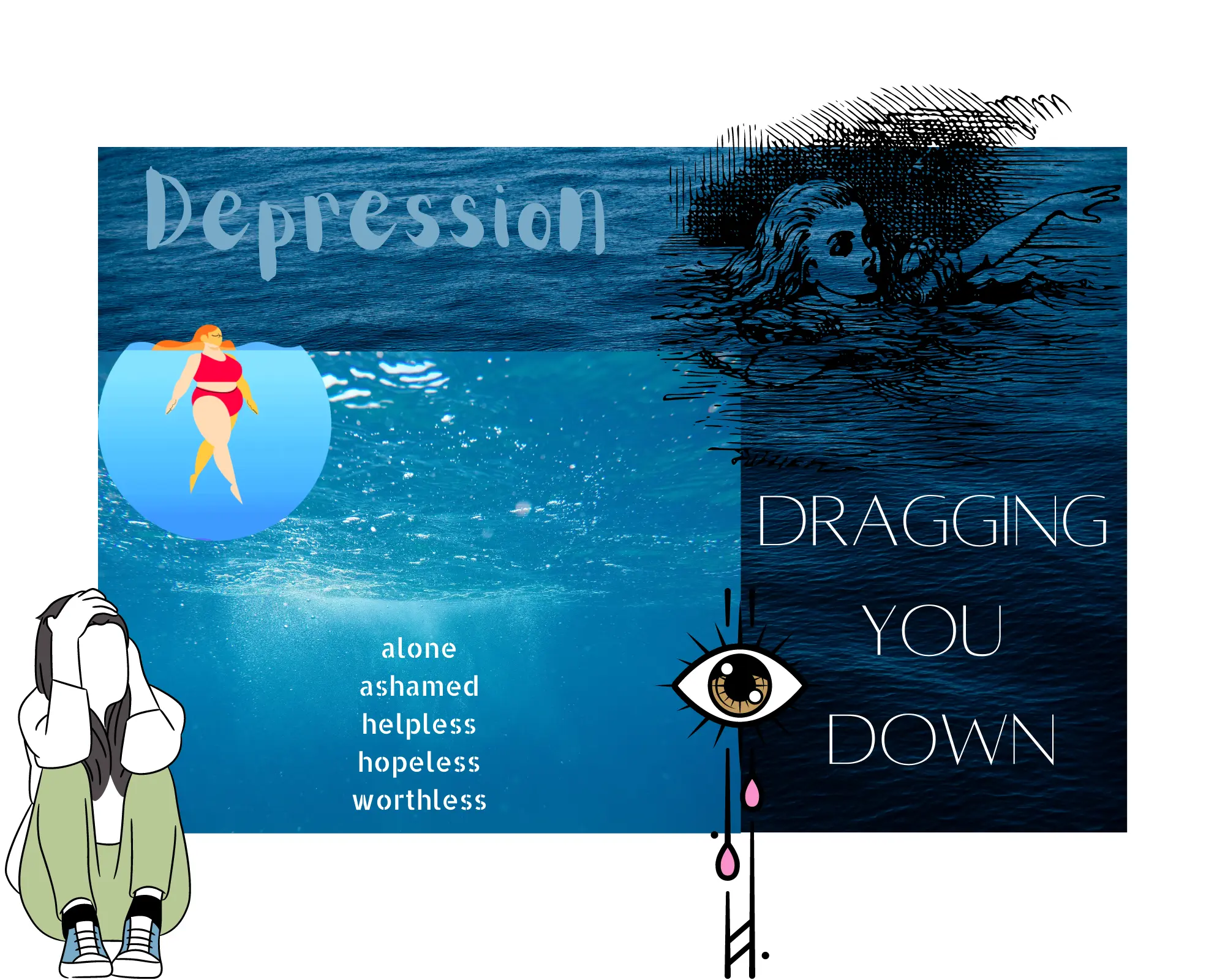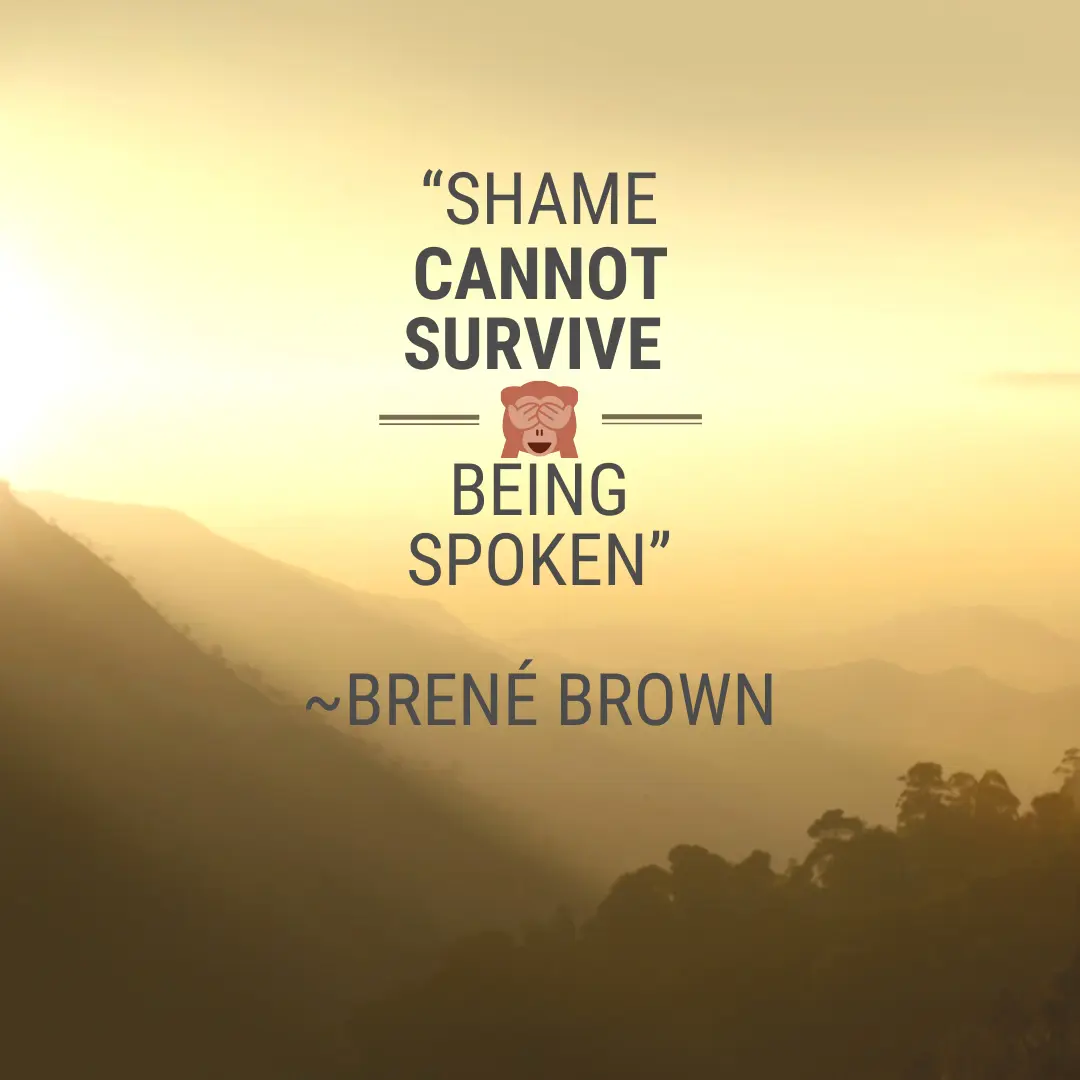Overview of Depression

Depression might feel as if you are drowning in the middle of the ocean with no one in sight. You are desperately trying to keep your head above water while exhausting all your effort in the process, hoping for some sign of rescue/relief. Every drop of your will power goes to meeting your basic needs (air), and there is not much energy left over to put towards enjoyed activities (like swimming) or anything else for that matter. All you want to do is be able to stop kicking and rest (or die because that might seem easier). You may feel hopeless about changing the situation (your depression/chances for survival), desperate for help but ashamed to ask for it, or excruciatingly lonely with your thoughts and feelings. You may think something is wrong with you for why else would you have been left alone or feel this pain? You are likely blaming yourself and gripped by shame about your sense of worthlessness. It might be hard to cry out to signal to anyone who will listen because you are thinking to yourself, "why would they care about you? Why would they want to help you? Even if they wanted to, how could they? Nobody could understand what I am going through."
Depression is a serious condition that can not be cast away at will (or suggestion). In more severe cases, people struggle to navigate their daily lives and function to complete tasks such as getting out of bed, eating, bathing, sleeping, let alone more difficult ones such as exercising, learning, working, socializing, parenting, or participating in enjoyable activities. Others may be able to show up to these various tasks but feel detached or empty while completing them. They may not find much meaning in what they are doing, struggle to concentrate, or work to pretend they are "fine" when this is not how it feels. Depression can be influenced by factors such as genetics, hormones, medical illnesses, traumatic experiences in relationships, lack of resources to develop healthy coping skills, persistent anxiety, and sense of isolation/loneliness, among others.
Symptoms of Depression
- Low mood: sadness, emptiness, hopelessness
- Mood may look irritable in children / teenagers
- Decreased interest/pleasure/motivation in almost all activities
- Unexpected weight change
- Difficulty sleeping
- Restlessness or heavy/slowness
- Loss of energy / fatigue
- Feeling worthless or excessive guilt
- Difficulty concentrating/Indecisiveness
- Thoughts of Death / suicidal ideation
- Self harm or plan for suicide
- Difficulty functioning in daily life (work/family/hygiene)
Set up an appointment if you would like support in any of the following:
- Understanding your specific symptoms
- Healing emotional wounds from your past and learning how they impact your life today
- Developing coping skills through self-care and self-compassion
- Reducing self-judgement and self-destructive behavior
- Addressing shame or anxiety
- Advocating for your needs and setting boundaries
- Developing emotionally healthy relationships
- Working to bolster and grow your self-esteem and sense of worth
- Regaining a sense of purpose and motivation
- Creating or repairing supportive relationships
In your own experience, are you recognizing these symptoms within yourself or someone you care about? Reach out for support with navigating your depression today.

What to Expect in Therapy when addressing Depression
Dr. Julie Griffin can help you by identifying where you are within your personal experience of depression. You may receive a recommendation to rule out any biological causes for depression (e.g., thyroid issues or medications). Dr. Griffin also addresses learning to recognize symptoms along with their triggers, develop coping skills to regulate your body, understand how emotions influence behavior, process your experiences in a new way, reduce self-critical judgment, identify values, set healthy boundaries, engage in self-care and self-compassion, learn how your past experiences may be contributing to your overall mood, and make empowered decisions about pursuing meaningful goals.
Dr. Julie Griffin offers free phone consultations to help you determine if therapy with her might be a good fit for you.
Contact Dr. Julie GriffinAbout Dr. Julie Griffin
Dr. Griffin uses an integrative psychodynamic approach to psychotherapy in order to help clients better understand themselves within their life context. She specializes in healing relationships, both through couples counseling and individual therapy.
Read Full BioSee All Services